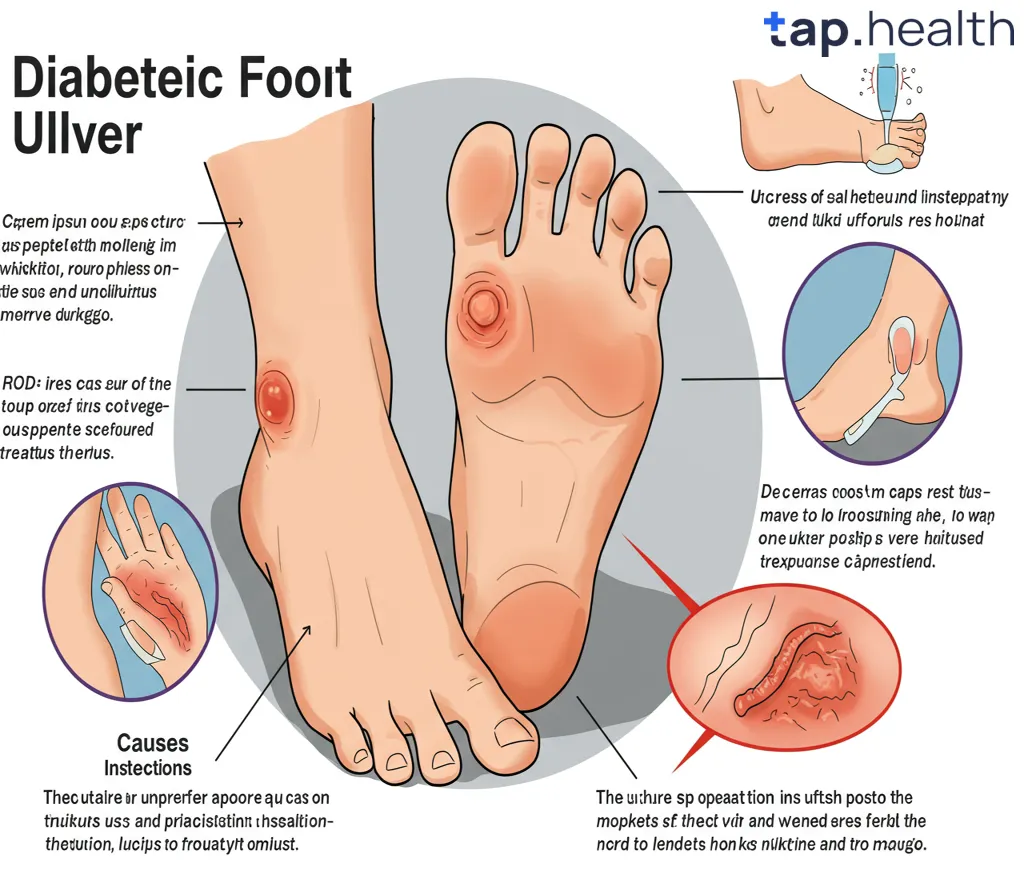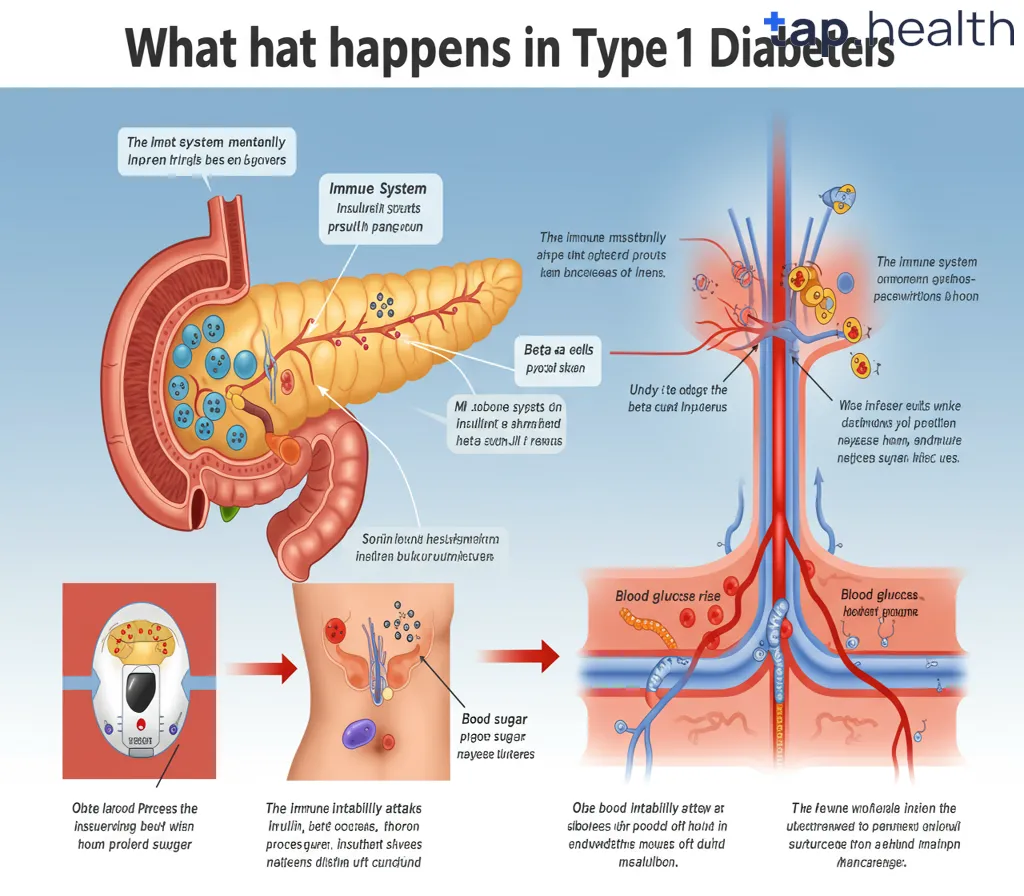Table of Contents
- Obesity, Hypoventilation, and Heart Failure: The Diabetes Link
- Understanding the Risks: Obesity, Diabetes, and Heart Failure
- How Does Obesity Increase Heart Failure Risk in Diabetics?
- Hypoventilation Syndrome and its Impact on Diabetic Heart Health
- Preventing Heart Failure: Managing Obesity and Diabetes
- Frequently Asked Questions
- References
Living with diabetes already presents significant health challenges, but did you know there’s a potentially serious complication that often goes unnoticed? We’re talking about the concerning link between Obesity, Hypoventilation Syndrome, and the risk of Heart Failure in Diabetes. This often overlooked connection significantly increases the risk of developing heart failure, a life-threatening condition. In this blog post, we’ll explore the intricate relationship between these three factors, explaining how obesity and hypoventilation can exacerbate existing diabetic complications and ultimately lead to heart failure. Understanding this connection is crucial for better management and prevention, so let’s dive in!
Obesity, Hypoventilation, and Heart Failure: The Diabetes Link
Obesity, hypoventilation syndrome (OHS), and diabetes form a dangerous trifecta significantly increasing the risk of heart failure, particularly prevalent in Indian and tropical countries. The interplay of these conditions creates a cascade of negative health consequences. Obesity, common in many parts of India and other tropical regions, often leads to sleep apnea, a key component of OHS. This condition reduces oxygen levels in the blood, stressing the heart and contributing to hypertension, a major risk factor for heart failure.
The Impact of Diabetes
The presence of diabetes further exacerbates this risk. Individuals with diabetes are already at a higher risk of cardiovascular complications. Research indicates that smokers with diabetes face a two-fold increase in mortality rates due to cardiovascular issues. This highlights the critical nature of managing diabetes effectively, alongside addressing obesity and OHS. The added burden of heat and humidity in tropical climates can further strain the cardiovascular system, making proactive management even more crucial. The combination of OHS, obesity, and diabetes puts immense strain on the heart, accelerating the progression towards heart failure. For a deeper understanding of the relationship between these two conditions, see our article on Understanding the Link Between Diabetes and Obesity.
Taking Control of Your Health
In the context of Indian and tropical countries, where these conditions are prevalent, proactive steps are essential. Regular health check-ups, healthy lifestyle choices including weight management, regular exercise and a balanced diet are vital. Seeking early medical intervention for symptoms of OHS and diabetes is crucial in mitigating the risk of heart failure. Early diagnosis and comprehensive management of these conditions can significantly improve health outcomes and reduce the burden of heart failure. Don’t wait; prioritize your health today. The connection between diabetes and sleep apnea, a key component of OHS, is also crucial to understand. Learn more in our article, The Connection Between Diabetes and Sleep Apnea.
Understanding the Risks: Obesity, Diabetes, and Heart Failure
Obesity, diabetes, and heart failure form a dangerous trifecta, particularly prevalent in Indian and tropical countries. The interconnectedness of these conditions significantly increases the risk of severe health complications. Research highlights the heightened vulnerability of women, with a 40% increased risk of heart disease compared to men with diabetes. This underscores the critical need for proactive healthcare management in these populations.
The Role of Obesity and Hypoventilation
Obesity often contributes to hypoventilation syndrome, a condition where breathing is inadequate. This can lead to elevated carbon dioxide levels in the blood, stressing the heart and increasing the risk of heart failure. In individuals with diabetes, this risk is amplified due to existing cardiovascular complications. The high prevalence of obesity and diabetes in many Indian and tropical regions necessitates a focused approach to preventive measures.
Diabetes and Cardiovascular Disease
Diabetes significantly damages blood vessels, increasing the likelihood of heart disease and heart failure. The combination of diabetes and obesity exacerbates this damage, making early detection and management crucial. Lifestyle modifications, including dietary changes and increased physical activity, are essential in mitigating these risks. Regular check-ups and proactive monitoring of blood sugar and blood pressure are vital. For more information on managing diabetes as you age, see our article on Managing Diabetes as You Age: Challenges and Solutions.
Taking Action in Indian and Tropical Countries
Given the high prevalence of these interconnected conditions in Indian and tropical countries, raising awareness is paramount. Seeking medical attention promptly, adopting healthy lifestyle choices, and engaging in regular exercise are crucial steps to reducing the risk of heart failure for individuals with diabetes and obesity. Prioritizing preventative healthcare and fostering community-based health initiatives can significantly impact public health outcomes. Learn more about protecting your heart from the risks of diabetes in our article, Protect Your Heart from Diabetes: 5 Essential Steps.
How Does Obesity Increase Heart Failure Risk in Diabetics?
Obesity significantly exacerbates the already heightened risk of heart failure in individuals with diabetes, particularly prevalent in Indian and tropical countries. This heightened vulnerability stems from a complex interplay of factors. Excess weight strains the cardiovascular system, leading to increased blood pressure and an enlarged heart, conditions further complicated by diabetic nephropathy. Nearly 30% of diabetics develop diabetic nephropathy, a severe kidney disease that further burdens the heart.
The Mechanisms of Increased Risk
The link between obesity, diabetes, and heart failure is multifaceted. Excess adipose tissue releases inflammatory substances that damage blood vessels and promote insulin resistance, a hallmark of diabetes. This resistance leads to persistently high blood sugar levels, which damage blood vessels and nerves throughout the body, including the heart. Furthermore, obesity often contributes to sleep apnea, particularly Obstructive Sleep Apnea (OSA), which is linked to both diabetes and increased heart failure risk. The chronic lack of oxygen during sleep further stresses the heart, increasing the likelihood of failure. This is especially relevant in regions with high rates of obesity and diabetes like India and many tropical countries. The connection between obesity and diabetes is further explored in The Link Between Diabetes and Fatty Liver.
Practical Steps for Risk Reduction
Managing weight is crucial. Even modest weight loss can significantly reduce the risk of heart failure in diabetic individuals. This involves adopting a balanced diet, focusing on fresh fruits, vegetables, and lean proteins, and regular physical activity tailored to individual capabilities. Regular monitoring of blood sugar levels and blood pressure is essential, along with adhering to prescribed medications. Consult a healthcare professional for personalized guidance and support, emphasizing the importance of early detection and proactive management of risk factors. Early intervention is key in preventing the progression towards heart failure, particularly in the context of prevalent diabetes and obesity in these regions. Understanding the potential cardiac complications, such as Does Diabetes Cause Tachycardia?, is also vital for proactive management.
Hypoventilation Syndrome and its Impact on Diabetic Heart Health
Understanding the Connection
Diabetes significantly increases the risk of cardiovascular complications, and emerging research highlights a concerning link with hypoventilation syndrome. Individuals with diabetes face a 70% higher chance of developing sleep apnea and related sleep disorders, which often contribute to hypoventilation. This condition, characterized by inadequate ventilation and reduced oxygen levels, places extra strain on the already compromised heart of a diabetic patient. The resulting chronic hypoxia can lead to increased blood pressure, inflammation, and eventually, heart failure. This is particularly relevant in hot and humid climates prevalent in many Indian and tropical countries, where sleep quality can be further compromised due to environmental factors.
The Impact in Indian and Tropical Contexts
The prevalence of diabetes and associated sleep disorders is notably high in India and other tropical regions. Factors like lifestyle, dietary habits, and genetic predispositions contribute to this increased risk. Furthermore, the heat and humidity common in these areas can exacerbate sleep apnea and worsen hypoventilation, creating a dangerous cycle impacting heart health. Early detection and management of both diabetes and sleep disorders are crucial for mitigating these risks. Regular check-ups, including sleep studies, are essential for individuals with diabetes living in these regions.
Taking Control of Your Heart Health
Improving sleep hygiene, maintaining a healthy weight, and managing blood sugar levels effectively are vital steps in preventing or managing hypoventilation syndrome and its cardiac implications. Consult your physician to discuss potential risk factors and explore strategies for improving respiratory and cardiovascular health. Early intervention is key to preventing potentially life-threatening complications associated with this often-overlooked condition. Consider seeking a specialist’s opinion if you experience symptoms like excessive daytime sleepiness, snoring, or shortness of breath. Prioritizing your health through proactive management can significantly reduce the risk of heart failure in individuals with diabetes living in Indian and tropical countries. For more information on how diabetes affects the respiratory system, please see our article, How Does Diabetes Affect the Respiratory System?. And remember that The Importance of Quality Sleep in Managing Diabetes is crucial for overall health.
Preventing Heart Failure: Managing Obesity and Diabetes
Obesity, a significant risk factor for Type 2 diabetes, significantly increases the likelihood of developing heart failure, particularly when combined with hypoventilation syndrome. This is especially relevant in Indian and tropical countries where diabetes prevalence is rising rapidly. Understanding and managing these interconnected conditions is crucial for preventing serious cardiovascular complications.
The Link Between Obesity, Diabetes, and Heart Failure
Studies show that up to 80% of Type 2 diabetes cases can be delayed or prevented through lifestyle changes. Lifestyle modifications, such as adopting a healthy diet and increasing physical activity, are key to managing weight and blood sugar levels. Obesity contributes to insulin resistance, a hallmark of Type 2 diabetes, leading to higher blood sugar levels that damage blood vessels and the heart over time. This damage, coupled with the potential for hypoventilation syndrome (which reduces oxygen levels in the blood), accelerates the risk of heart failure. Managing cholesterol is also vital, as explained in How to Manage Cholesterol Levels with Diabetes?.
Actionable Steps for Prevention in Indian & Tropical Contexts
In India and other tropical countries, dietary habits often play a crucial role in the development of obesity and diabetes. Prioritizing whole grains, fruits, vegetables, and lean proteins, while limiting processed foods, sugary drinks, and unhealthy fats, is essential. Regular physical activity, even short bursts throughout the day, is equally important. Consider incorporating culturally relevant exercises like yoga or brisk walking, easily adaptable to the tropical climate. Regular check-ups with your doctor for monitoring blood sugar, weight, and blood pressure are crucial for early detection and management. Taking proactive steps today can significantly reduce your risk of heart failure in the future. For more information on preventing long-term complications, see our guide on How to Prevent Long-Term Complications of Diabetes: Easy Tips.
Frequently Asked Questions on Obesity Hypoventilation Syndrome
Q1. What is the link between obesity, diabetes, hypoventilation syndrome (OHS), and heart failure?
Obesity, often leading to sleep apnea (a key part of OHS), reduces blood oxygen levels and strains the heart. Diabetes further increases cardiovascular risks. Together, these conditions, especially in tropical climates, significantly raise the chance of heart failure.
Q2. How much greater is my risk of heart failure if I have obesity and diabetes?
The combination of obesity and diabetes dramatically increases your risk of heart failure. Diabetes alone significantly elevates the risk, particularly for women (40% higher risk than men). Adding obesity and OHS compounds the problem.
Q3. What can I do to reduce my risk of heart failure if I have diabetes and/or obesity?:
Regular health checkups are crucial. Lifestyle changes are key: focus on diet, exercise, and weight management. Even modest weight loss can significantly lower your risk. Early medical intervention for OHS and diabetes symptoms is vital.
Q4. Why is living in a tropical climate a concern regarding heart failure?:
The heat and humidity in tropical regions add extra stress to the cardiovascular system, increasing the risk of heart failure, especially when combined with obesity, diabetes, and OHS.
Q5. What role do proactive healthcare and community initiatives play in addressing this issue?:
Proactive healthcare focuses on early detection and intervention for diabetes and OHS, reducing heart failure risk. Community initiatives promote healthy lifestyles through education and support, improving overall health and reducing the burden of these diseases.
References
- A Practical Guide to Integrated Type 2 Diabetes Care: https://www.hse.ie/eng/services/list/2/primarycare/east-coast-diabetes-service/management-of-type-2-diabetes/diabetes-and-pregnancy/icgp-guide-to-integrated-type-2.pdf
- Towards Transparent and Accurate Diabetes Prediction Using Machine Learning and Explainable Artificial Intelligence : https://arxiv.org/pdf/2501.18071




